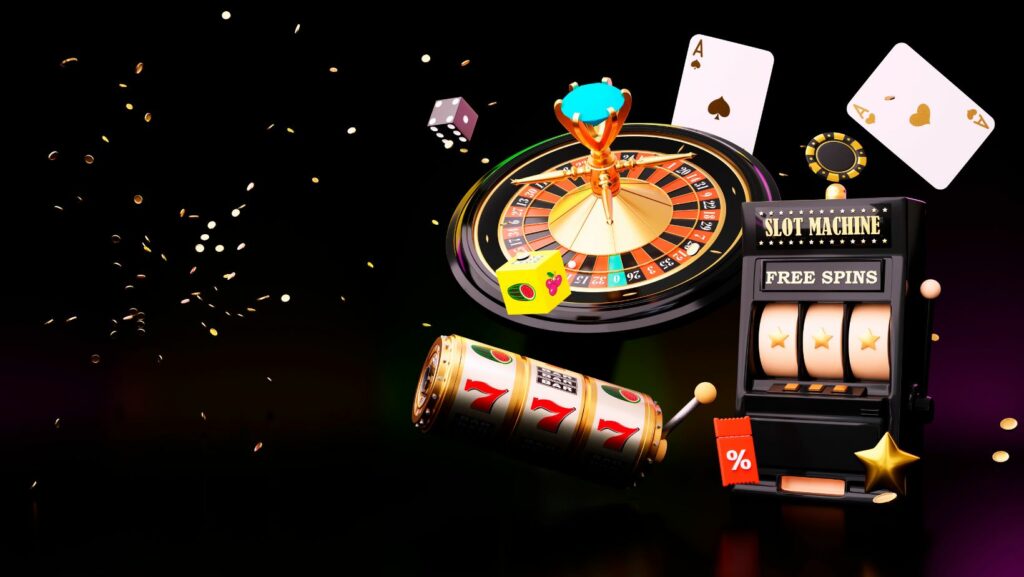Gambling addiction is a complex issue that affects millions worldwide, often hiding in plain sight. It’s not just about losing money; it’s a psychological battle that intertwines excitement, risk, and compulsion. Understanding the mental processes behind this addiction is crucial for both prevention and recovery.
The Psychology of Gambling Addiction
Gambling addiction manifests through intricate psychological mechanisms affecting thoughts, emotions, and behaviors. Understanding these factors is crucial for addressing this widespread issue effectively.
Prevalence and Impact
 Gambling addiction affects approximately 1-2% of the population, translating to millions of individuals worldwide. This addiction often leads to severe consequences in various aspects of life, including finances, relationships, and mental health.
Gambling addiction affects approximately 1-2% of the population, translating to millions of individuals worldwide. This addiction often leads to severe consequences in various aspects of life, including finances, relationships, and mental health.
The impact extends beyond the individual, affecting families and communities. Financial ruin frequently results in increased stress, anxiety, and depression among loved ones. Research indicates that individuals with gambling addiction experience higher rates of suicidal ideation compared to other populations. Understanding the magnitude and influence of gambling addiction aids in recognizing its necessity for intervention and support.
The Psychological Factors
Understanding the psychological factors in gambling addiction is essential for effective prevention and treatment. The interplay of cognitive distortions and emotional triggers significantly influences an individual’s gambling behavior.
Cognitive Distortions
 Cognitive distortions play a crucial role in gambling addiction. Gamblers often exhibit irrational beliefs that maintain their compulsive behaviors. Common distortions include:
Cognitive distortions play a crucial role in gambling addiction. Gamblers often exhibit irrational beliefs that maintain their compulsive behaviors. Common distortions include:
-
Gambler’s Fallacy: The mistaken belief that past outcomes influence future results, leading individuals to expect imminent wins based on their losses.
-
Illusion of Control: The perception that one can influence the outcome of a game, despite it being purely luck-based, promotes continued participation.
-
Overconfidence: Excessive self-belief in one’s gambling skills or strategies leads to risky decisions and increased betting.
These distortions create a false narrative, reinforcing the gambler’s commitment to their habits, even in the face of mounting losses. Acknowledging these patterns is critical for breaking the cycle of addiction.
Emotional Triggers
Emotional triggers significantly contribute to the onset and persistence of gambling addiction. Common triggers include:
-
Stress: Individuals often gamble to escape stress, believing it provides relief, but it usually exacerbates distress long-term.
-
Boredom: Some people gamble to alleviate boredom, seeking excitement and stimulation through risk-taking behavior.
-
Loneliness: Isolation can lead to gambling as a distraction, filling emotional voids and offering temporary satisfaction.
The Role of Environment
Accessibility of Gambling Opportunities
-
 Local Regulations: Regions with lenient gambling laws often see increased participation in gambling activities.
Local Regulations: Regions with lenient gambling laws often see increased participation in gambling activities. -
Proximity to Casinos: Living close to casinos or gambling venues correlates with higher rates of gambling addiction.
-
Availability of Online Gambling: Online platforms provide easy access, attracting individuals who may not typically engage in traditional gambling.
Social Influences
-
Peer Pressure: Social circles that normalize or encourage gambling can significantly impact an individual’s behavior.
-
Family Dynamics: Families with a history of gambling may unwittingly pass down habits, creating a cycle of addiction.
-
Cultural Attitudes: Societal views on gambling can facilitate its acceptance, making it easier for individuals to justify excessive gambling.
Environmental Cues
-
 Triggers in the Environment: Certain locations or experiences can trigger the urge to gamble. This phenomenon often involves sensory stimuli like lights, sounds, and the ambiance of gambling establishments.
Triggers in the Environment: Certain locations or experiences can trigger the urge to gamble. This phenomenon often involves sensory stimuli like lights, sounds, and the ambiance of gambling establishments. -
Marketing and Promotions: Aggressive advertising and promotional bonuses can entice individuals to gamble more frequently, reinforcing addictive behaviors.
-
Economic Downturns: During times of financial stress, individuals may turn to gambling as a means of escape or to regain lost income.
-
Availability of Disposables: Access to disposable income can lead individuals to gamble, even if they lack prior interest.
Treatment Approaches
Understanding the complexities of gambling addiction is crucial for developing effective treatment strategies. By addressing both psychological and environmental factors, individuals can find pathways to recovery. Cognitive-behavioral therapy offers tools to challenge harmful thought patterns while support groups provide community and shared experiences.
Moreover, integrating family support can enhance recovery efforts by fostering healthier relationships. As awareness grows about the psychological underpinnings of this addiction, society can better equip individuals with the resources necessary for healing. A comprehensive approach that combines therapy, support, and education is vital for breaking the cycle of gambling addiction and promoting lasting change.

